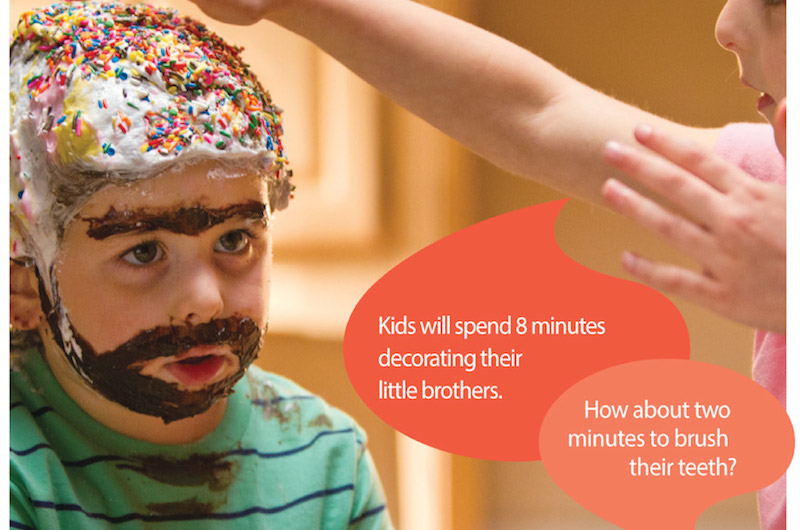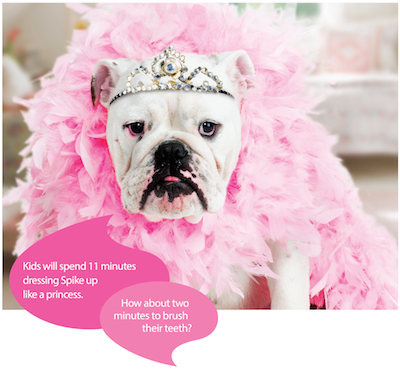by Roseman Dental | Mar 25, 2015 | Dental Clinic Blog, Oral Health, Roseman Dental - NV, Roseman Dental - UT
There are few things that are more important to your health than checking for signs of cancer. With any type of cancer, early detection is crucial. With oral cancer, detecting the signs and symptoms early can be life-saving. There are a few key symptoms to look for when checking for oral cancer.
White or Red Lesions
There are two types of lesions that your need to be on the lookout for. White lesions, also called leukoplakia, and red lesions, sometimes called erythroplakia, are both clear indicators of oral cancer. Red lesions are more likely to be cancerous, but white lesions are more common. If you notice any of these lesions that do not go away within two weeks, consider getting a biopsy to determine if they are cancerous or not.
Lump or Thickening of Oral Soft Tissue
If there are any lumps in or around your mouth or if something is more swollen than it typically should be, notify your doctor. This can be one of the signs that something may be wrong. Any issue like this that lasts longer than two weeks could be a potential indicator for oral cancer.
Difficulty Chewing or Swallowing
If you have any difficulty chewing or swallowing, this could be an indicator for oral cancer. This is one of the many signs that something could be wrong. Other symptoms can include sore throat, ear pain, any difficulty moving your tongue or jaw and numbness. You should be on the lookout for these symptoms regularly, although you will probably notice them right away. If they persist longer than two weeks, make an appointment to address the issue with your doctor.
Early detection of any cancer is paramount to your health. Regularly check for these and any other common or possible signs and symptoms of oral cancer. It’s also important to take steps toward reducing your risk for developing oral cancer. Reducing sun exposure, quitting smoking and eating enough fruits and vegetables are all possible ways to lessen your cancer risk.
by Roseman Dental | Mar 18, 2015 | Dental Clinic Blog, Oral Health, Roseman Dental - NV, Roseman Dental - UT
There are many different specialties under the umbrella of oral care professionals. Everyone has heard of dentists and orthodontists, but there are others out there. One branch of oral care you may not be familiar with is prosthodontics. In fact, so few people understand what these professionals do that there is a whole prosthodontics awareness week in April. What type of work do they do? How do they help people?
Experts in Replacing Teeth
When teeth are lost due to injury, accident, or removal, your regular dentist may send you to a prosthodontist. Prosthodontists specialize in the replacement of lost or removed adult teeth. Whether you need a crown, bridge or dentures, either full or partial, look no further than a prosthodontist. They have special training that allows them to create and implement these important and common pieces of dental technology in order for their patients to live comfortably with their teeth.
Cosmetic Dentistry
Cosmetic dentistry is oral care that is not medically necessary, but instead is related to enhancing the look of your teeth. Looking to get ceramic crowns or veneers? Want a brighter, whiter smile? Prosthodontists can help with that, as well. They often have advanced training that allows them to handle any type of cosmetic dentistry, including using bonding agents to close gaps and fill cracks or divots in a tooth.
Complex Cases
Sometimes, an injury is so severe that it cannot be fixed by a traditional dentist. That is when they send you to a prosthodontist. These dental professionals are capable of repairing damaged palates, rehabilitating victims of traumatic injuries and reconstruction for people who have survived oral cancers. In order to make sure their patients are fully treated, prosthodontists also help to manage the care for these patients across multiple medical and dental professionals.
Prosthodontics is an incredible dental specialty that is particularly concerned with replacing lost teeth, providing cosmetic changes and dealing with complex or traumatic cases. This branch of dentistry is incredibly beneficial to many people who have had injuries or need some kind of oral reconstruction.

by Roseman Dental | Mar 13, 2015 | Dental Clinic Blog
Teaching your children the techniques for good oral health
A new ad campaign by the Partnership for Healthy Mouths, Healthy Lives and the Ad Council highlights all the things that kids will do for several minutes every day—everything from watching gerbils on YouTube (19 minutes) to dressing the dog up as a princess (11 minutes)—but often they don’t spend the recommended 2 minutes, twice a day to brush their teeth. These simple 4 minutes are one of the easiest ways for a child to maintain good oral health, especially when combined with regular visits to the dentist.
Early Dental Decay in Children
Children in America, particularly those from lower income families, suffer from a significant amount of tooth decay. In fact since 1990, the National Institute of Dental and Craniofacial Research has noted an increase in the number of dental caries (cavities) in the baby teeth of children ages 2 to 11 years, with 42 percent of children in this age group experiencing untreated tooth decay. The damage doesn’t end with baby teeth—studies also show that 21 percent of children ages 6 to 11 have cavities in their permanent teeth.
Untreated dental decay is the single most common chronic childhood disease, affecting about 17 million children every year. It often leads to pain, missed school days, increased emergency room visits, improper speech development, difficulty sleeping, and other developmental issues.
Fortunately there are things all parents can do that can help prevent childhood dental decay. One of the best things is to help children learn how to properly brush their teeth, and make sure they are brushing for two minutes at least twice a day.
The 2min2x Campaign
 Knowing that properly brushing teeth can significantly improve childhood oral health, the Partnership for Healthy Mouths, Healthy Lives—a coalition of 36 organizations from the field of oral health—teamed up with the Ad Council to create the 2min2x campaign.
Knowing that properly brushing teeth can significantly improve childhood oral health, the Partnership for Healthy Mouths, Healthy Lives—a coalition of 36 organizations from the field of oral health—teamed up with the Ad Council to create the 2min2x campaign.
The goal of the campaign is to talk to parents about the importance of brushing children’s teeth twice a day (usually morning and night) for the recommended 2 minutes each time. That’s just 4 minutes out of a total of 1,440 minutes in every day, and those 4 minutes to improve oral health won’t require much time or cost much money. The simple act of brushing teeth can help remove bacteria and plaque from tooth surfaces, which in turn can reduce the number of cavities in a child’s teeth, and improve oral health and overall health. You can find information and resources about the campaign, including tips about oral health care for children of all ages, at the 2min2x campaign website.
Strategies for Preventing Dental Decay in Children
Here are some additional strategies parents can use to prevent childhood tooth decay:
- Avoid giving infants and toddlers sugary liquids (milk, formula, fruit juice), especially around bedtime and naptime.
- Only allow sugary drinks at mealtime (the increased saliva produced when eating can help wash away bacteria), and serve water between meals.
- Feed children at least 5 servings of fruits and veggies each day and choose healthy, nutritious snacks. Find snack ideas at 2min2x.org.
- Find fun ways to get the recommended 2 minutes of brushing, such as playing a song or video while your child is brushing, setting a timer, or getting a toothbrush that flashes for 2 minutes.
- Supervise and help children brush to make sure teeth are properly cleaned, and ensure your child is not swallowing toothpaste.
- Take your child to the dentist at least once a year, and preferably twice a year, beginning at 12 months of age so they can get a deep cleaning and the dentist can check for things like decay and cavities.
The simple act of brushing teeth twice a day is one of the most effective tools to fight tooth decay in children and adults. When it comes to your child’s health, isn’t it worth 4 minutes of your day?
For additional resources and to find an affordable dentist in the Salt Lake valley, call The Dental Clinic at Roseman University today at 801-878-1200.
by Roseman Dental | Mar 4, 2015 | Dental Clinic Blog, Oral Health, Roseman Dental - NV, Roseman Dental - UT
A root canal is a common dental procedure that involves replacing decaying and infected dental pulp inside a tooth. After the diseased pulp has been extracted, the interior of the tooth is thoroughly cleaned and sealed. According to the American Association of Endodontists, over 15 million root canals are done each year. The procedure is often thought to be very painful, but many people describe the discomfort they experience prior to a root canal as much worse.
Why Would I Need a Root Canal?
There are several situations that can make root canals a good option. A primary one is a tooth that becomes decayed due to a poor diet and inadequate dental hygiene. If you are hit in the mouth, sometimes impacted teeth begin to die and a root canal can be one of the options your dentist proposes. Some signs a root canal may be needed include tooth pain and sensitivity. Tooth discoloration, and swelling and irritation in the gums are also symptoms.
Preventative Measures
The best way to avoid a root cancel is to take good care of your teeth. This includes proper dental hygiene including daily brushing and flossing, and regular dental appointments. Eating a healthy diet and avoiding sugar will help prevent tooth decay. If you participate in contact sports, try to wear a mouth guard so your teeth do not get unnecessarily damaged.
Alternatives to a Root Canal
For many people getting a root canal is the best choice for treatment. If you have been diagnosed as needing a root canal but want to explore any potential alternative, herbal treatments may be worth considering. Plantain poultices, goldenseal powder and Echinacea are options that are recommended by some dental professionals. However, if the pain does not go away, it is advisable to get to a dentist for the root canal right away because waiting too long may make the situation worse—meaning it will be more costly and more difficult to fix.
No one wants to get a root canal and taking good care of your teeth is the best way to avoid the procedure.


